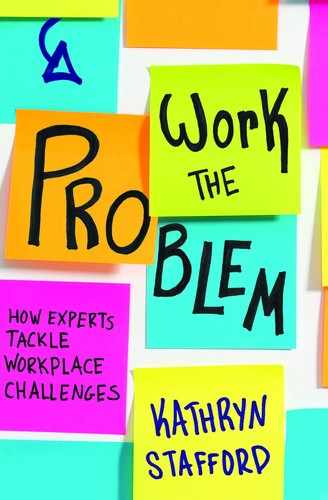TAKE 2
Commentary by Sharlyn Lauby
Sharlyn Lauby is the president of ITM Group and author of the blog HR Bartender.
In my experience, the culture of higher education is unique. So, there could be organizational structures and traditions in play that don’t relate to other industries. That being said, there are a couple of aspects to this scenario that many industries will find relevant.
In this case study, Andrew has the title, office, and the responsibility. The question is, does he have the authority? A person who has responsibility without authority is destined to fail.
I’m curious to know what conversations took place between Andrew and the dean during the recruiting process. I’m a big fan of collaborative hiring, because having multiple people involved in the recruiting process gives new hires several people they can turn to when they have questions (and don’t necessarily want to go to their boss or HR for answers).
Was the dean aware of what was taking place within the ELP’s faculty board (that is, the tennis league environment)? If so, was that communicated to Andrew? I don’t get the impression that Andrew picked up on the faculty board dynamic during his interviews and lunch with them, but did the dean offer any hints? Is the faculty board camaraderie a well-kept secret?
There are two approaches I would initially consider—one for Andrew and the other for the college.
First, if I were Andrew, I would step back and take a very objective approach to this situation. I would think about what took place during the interview process. Were there signs I should have noticed? Questions I could have asked but didn’t? I would also ask myself if this is a problem I’m prepared to deal with. It’s not clear how much (or little) Andrew likes this job or the college. Those responses could answer a lot of questions.
At some point, Andrew will need to confront his lack of authority. He took the job based on a set of assumptions and, according to his account, it sounds like he was bamboozled. If he doesn’t get the authority to do his job, he will continue to be frustrated, which could lead him to the point of leaving. Moreover, it could prevent him from accomplishing his goals of turning the program around (which would lead to his eventual dismissal).
Second, I’d like to think that human resources will reach out to Andrew for his feedback. He’s a new employee with a fresh set of eyes, which gives him a valuable perspective to share. In addition, HR should also ask the faculty board for their feedback. They were part of the hiring process. We’re assuming based on the case study that Andrew bears no responsibility in this situation. However, it would be interesting to know the faculty’s perceptions, especially to Andrew’s proposed changes.
Ultimately, the organization—that is, the dean and HR—need to make sure he is set up for success. He is a new employee and deserves a proper onboarding. The onboarding process also involves more than the dean, so others in the college—including the faculty board, which supposedly bought into Andrew being hired—should be making sure that Andrew is welcome and equipped for success. I would hope that the organization isn’t too late, and Andrew hasn’t already decided to start looking for a new opportunity.
The new interim dean, introduced at the end of the case study, will have to walk the tightrope of being friendly without being seen as a friend. If that line is crossed, it could be perceived as favoritism, which would hurt the interim dean’s credibility and the college work environment overall. At this point, the interim dean’s group email note might be harmless. It wouldn’t be fair to judge. But it has the potential to be damaging.
In addition to new hire orientation and onboarding, the college should develop an onboarding program specifically for new managers. Managers are responsible for a lot and their success or failure can trickle down the organization. They should also conduct new hire feedback sessions and pulse surveys to make sure that new hires are getting the information and training they need to be successful. Short electronic surveys or one-on-one meetings can let the organization know when to adjust before employees get frustrated.
Unfortunately, organizations do sometimes leave out team and culture dynamics during the recruiting process. This isn’t an issue exclusive to higher education. And it’s not intentional. Companies want their workplace to come across as utopia so candidates will want to work there. Every organization has its challenges.
It’s also unfortunate that organizations often do not give new employees a proper welcome. They assume that because the new employee is smart and competent they don’t need any guidance. That’s simply not true. This is exactly the reason onboarding programs are so important—even for senior-level positions. Organizations have unwritten rules. Giving new employees a buddy or a mentor can help share them.
